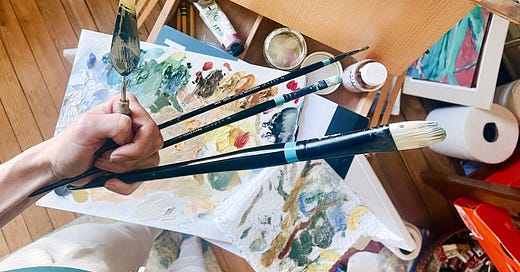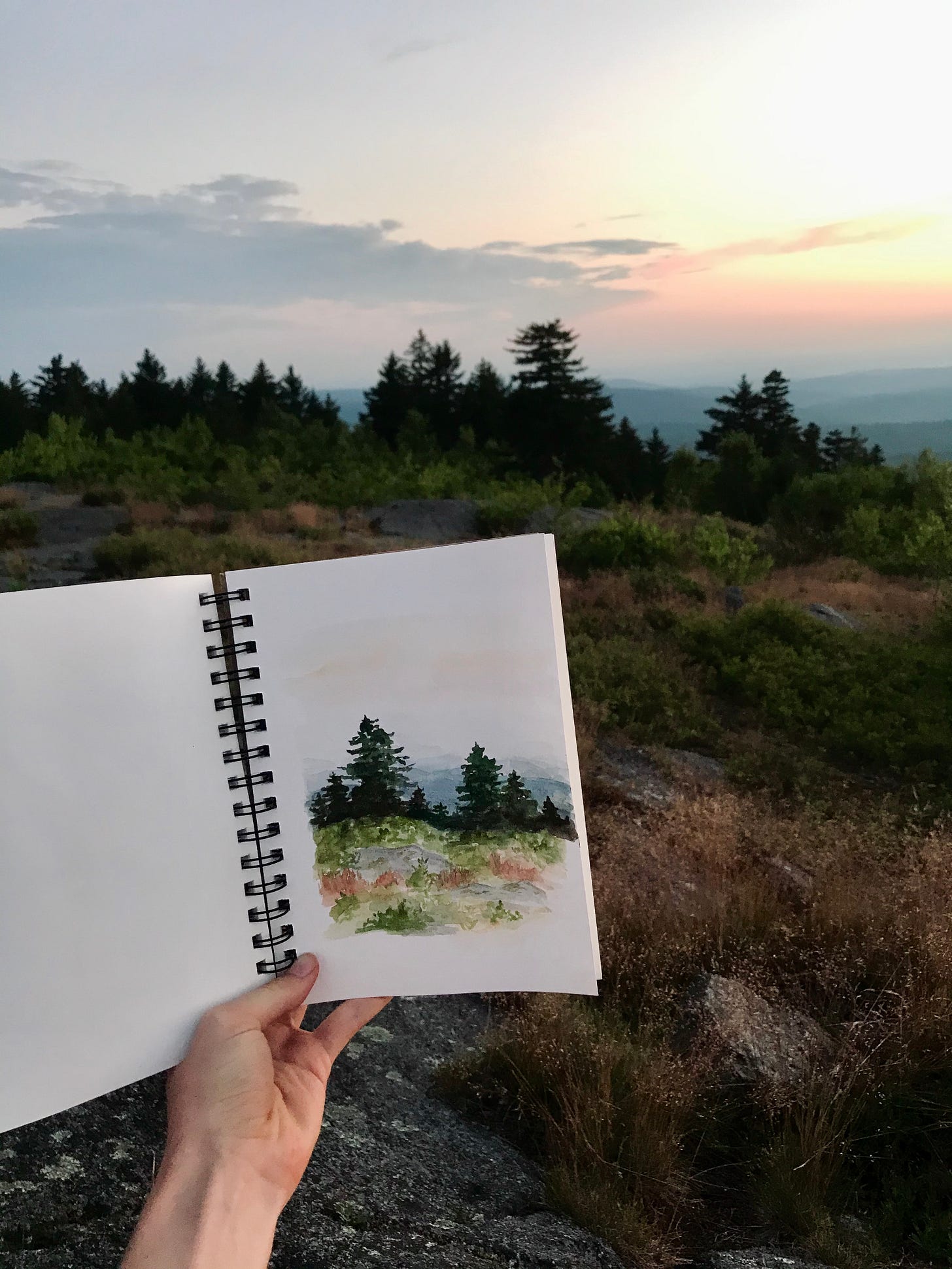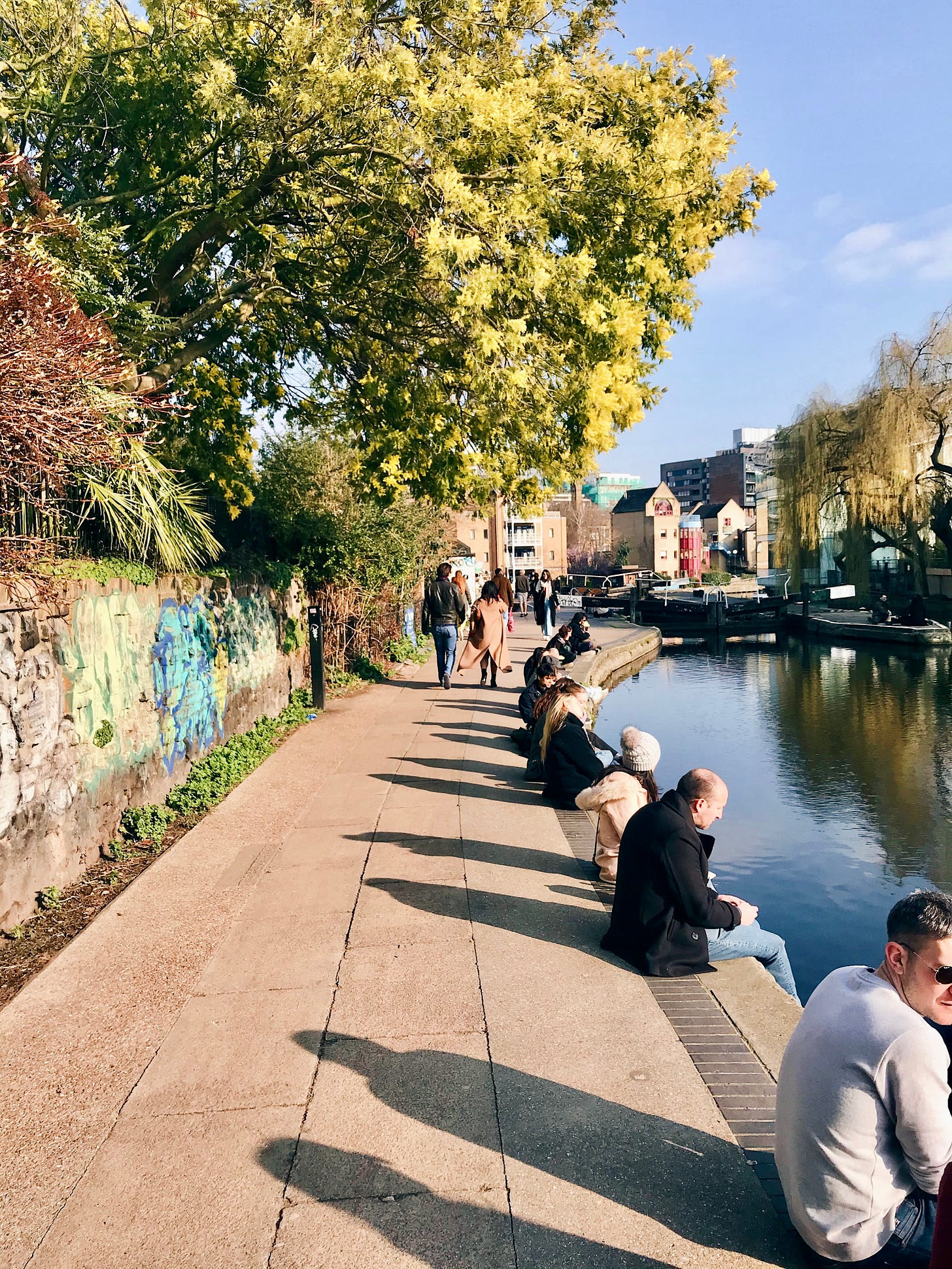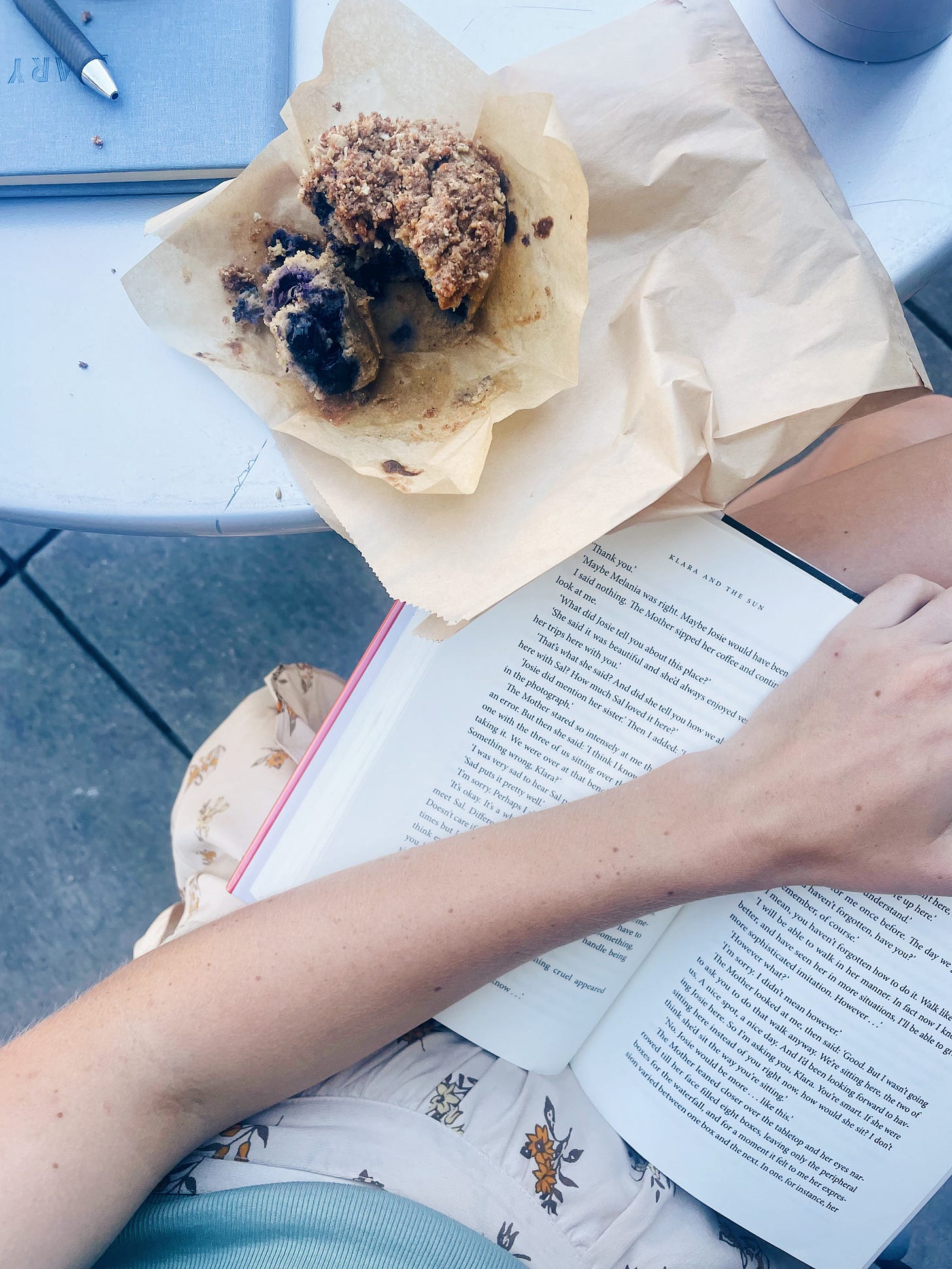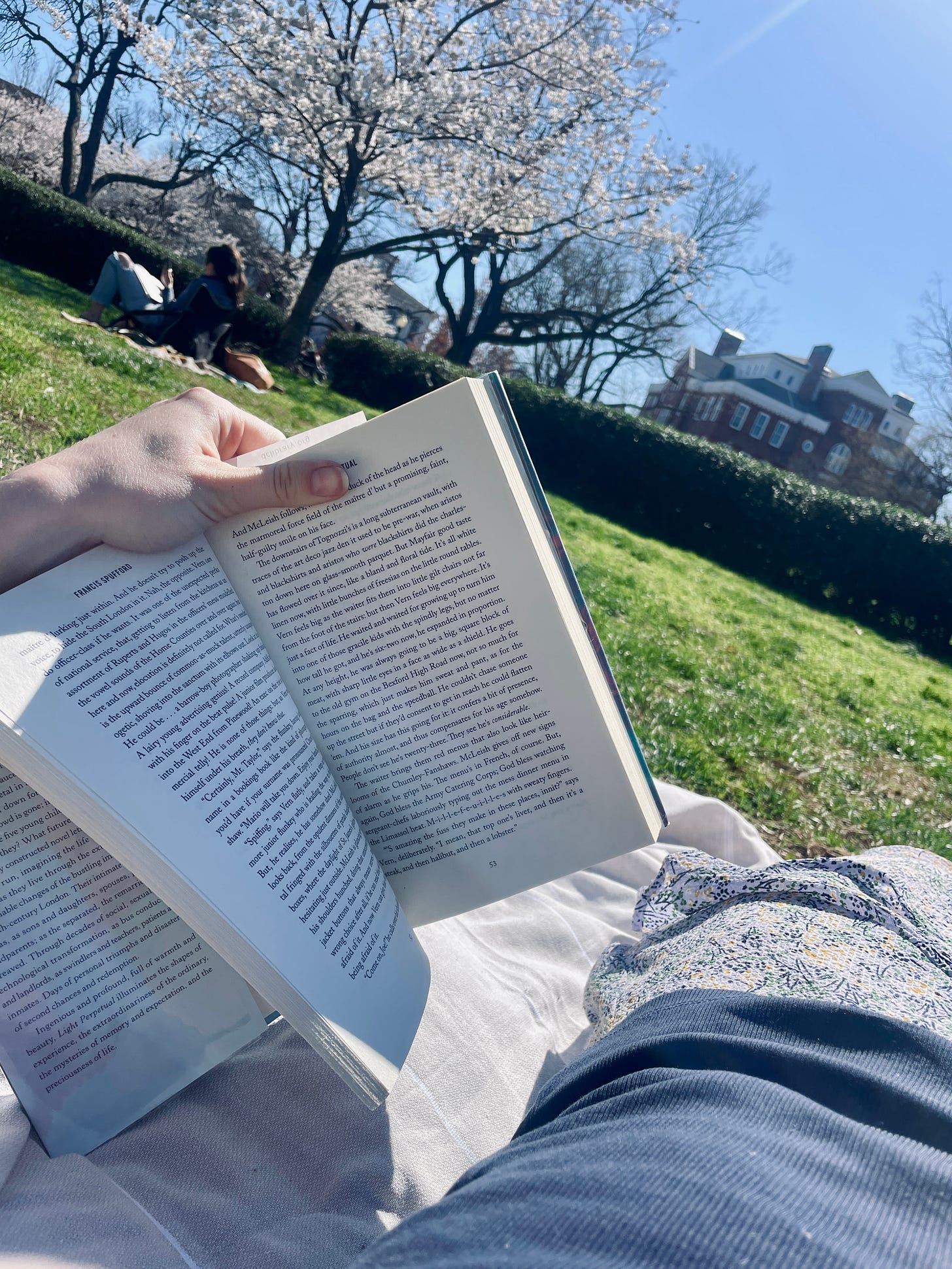After my grandfather died suddenly in an accident, I never wanted to return to his house. I never wanted to go to the town he lived in again. I probably would have just avoided the entire state of New Hampshire. But the rest of my family had a different outlook, and so we went. I still remember what it felt like to walk back into the house for the first time knowing he was gone. With each step I took I knew that all these perfect, pristine memories of him would be polluted by absence.
I struggle with what to do with memories. There's so much to remember.
I want to remember every inch along that section of the canal I would walk during Covid - every bench, every muddy patch that I would skirt around, the spot where we lay together in the grass on the first warm day of spring, the canal boat with the cat, the coffee shop you would take me to on Friday mornings rain or shine. I save all the voice messages I receive, clogging my phone of storage, just so I don't forget the way their voices sound. I recite old phone numbers, old zip codes. I remember before they sold my grandmother's house, standing on the old wooden stairs and forcing myself to memorize the pattern of the stained glass on the landing. I did the same with my head buried in my cat, the night before she died, holding in the scent like you hold in your breath underwater. I have a list in the notes app on my phone titled “Favorite Memories” in which, segmented by year, I capture my favorite experiences down to minute detail.
Sometimes I wonder if my obsessive remembering is a crutch. Is it tying me to the past in a way that is inhibiting me from moving forward? Or living in the present? What do I do with painful memories? How do I reconcile my past self with my present self?
This all reminds me of Lois Lowry's novel, The Giver, where one individual is designated with the task of remembering for the whole community. This individual, the “Receiver of Memory," holds the memories of the past, both positive and negative, joyful and painful, to enable the rest of the community to live lives with their memories suppressed to live a life of conformity and security - painless but sterile, safe but colorless (literally).
I've written recently about the obligatory symbiosis of pain and beauty, of love and death. Maybe memory is just another example of this - memories are beautiful and my memories make me who I am. But memories are also achingly painful and make it so that I am constantly becoming a new, unfamiliar version of myself.
I am very fond of the British Japanese author Kazuo Ishiguro who explores the themes of nostalgia, loss, and the unreliability of memory in his fiction works. Speaking of memory, I have deeply ingrained memories of walking the inner depths of Hampstead Heath during long April days listening to Ishiguro's Never Let Me Go on audiobook that first spring of Covid.
In Never Let Me Go and Ishiguro's more recent work Klara and The Sun, the narrator's memories are incomplete, distorted, or selective. It takes until very nearly the end of the books for the reader to decipher the role of each of the main characters, as, they do not even see the whole picture. Although both Kathy, in Never Let Me Go, and Klara, in Klara and the Sun, face tragic ends, they maintain a sense of meaning and dedication to their purpose throughout their lives. Ishiguro's writing is steeped in nostalgia. The characters come back again and again in longing detail to the people and places that made them who they are.
In another work of contemporary fiction, Tomorrow and Tomorrow and Tomorrow by Gabrielle Zevin, the main character Sam wrestles with a desire to forget memories, specifically after his best friend Max tragically dies. The book uses video games as contrast to the real-life narrative. In video games, it is possible to reboot the game, reset the player, and start again, and again, and again. But life is not like that, is it?
Sam asks -
“Memory, you realized long ago, is a game that a healthy-brained person can play all the time, and the game of memory is won or lost on one criterion: Do you leave the formation of memories to happenstance, or do you decide to remember?"
I'm not sure where this leaves me with my memory predicament. Some days I long to forget; I am afraid that if I let myself go down a memory rabbit trail the floodgates will open and I will be crushed by their cumulative weight.
Because the Receiver of Memory, in The Giver, is the only individual who holds memories like the warmth of a fireplace or pain of death, he has no one with which to share, sympathize, or process memories. Lowry writes -
"The worst part of holding the memories is not the pain. It's the loneliness of it. Memories need to be shared."
Perhaps that is one way to respond to memory - to share it.
I think another way to deal with the weight of memory is to use art as a vessel to carry memories. Songs hold memories. Poems capture memories. My paintings bring back memories. Even novels remind me of the person I was when I first read them, the ways their narratives shaped my mind, the people I read them with (shout out to book club!). Art can be profoundly healing and restorative in the constant process of remembering, forgetting, and putting back together the pieces of ourselves, again.
Enjoying… well, more like hit in the face by… Everything Everywhere All at Once, the film that swept the 2023 Oscars. Everyone who knows me knows my inability to watch a film for longer than an hour, but I managed to sit engrossed through this wild ride of a film about a Chinese American woman who enters the multi-verse. It heavily explores philosophical themes such as existentialism, nihilism, surrealism, and absurdism. In an interview, the film’s co-creator says,
I was very religious growing up. I was almost basically evangelical Christian until I was in my 20s. And then slowly, slowly, and then all of a sudden, it was gone. And that’s kind of what this movie was trying to re-create. That moment when Evelyn is screaming, and she’s feeling everything, and she’s completely unmoored and lost, that is the experience of losing God. That’s the experience of not having a moral center, and not having a focus of meaning, of purpose. The second half of the movie is basically her trying to do what I did, which is crawl around in the dark and the chaos, finding something worth living for, finding something worth fighting for.
Much to mull over in this film.
Reading… outside!! It’s officially reading in the park season.
Inspired by… the printmaker Cally Conway is working on a new intricate linocut print combining lettering, animals, and nature and I can’t wait to see how it turns out!
Listening to… today’s post made me think of the song “Keep me in Your Heart,” which I came to through the Wailin’ Jennys. The lyrics “Sometimes when you're doin' simple things around the house. Maybe you'll think of me and smile” is some of the most comforting grief advice I know.
Question of the Week
Do you think nostalgia is a positive or negative emotion? Why or why not?
“But in the end, stories are about one person saying to another: This is the way it feels to me. Can you understand what I’m saying? Does it feel this way to you?”
- Kazuo Ishiguro

